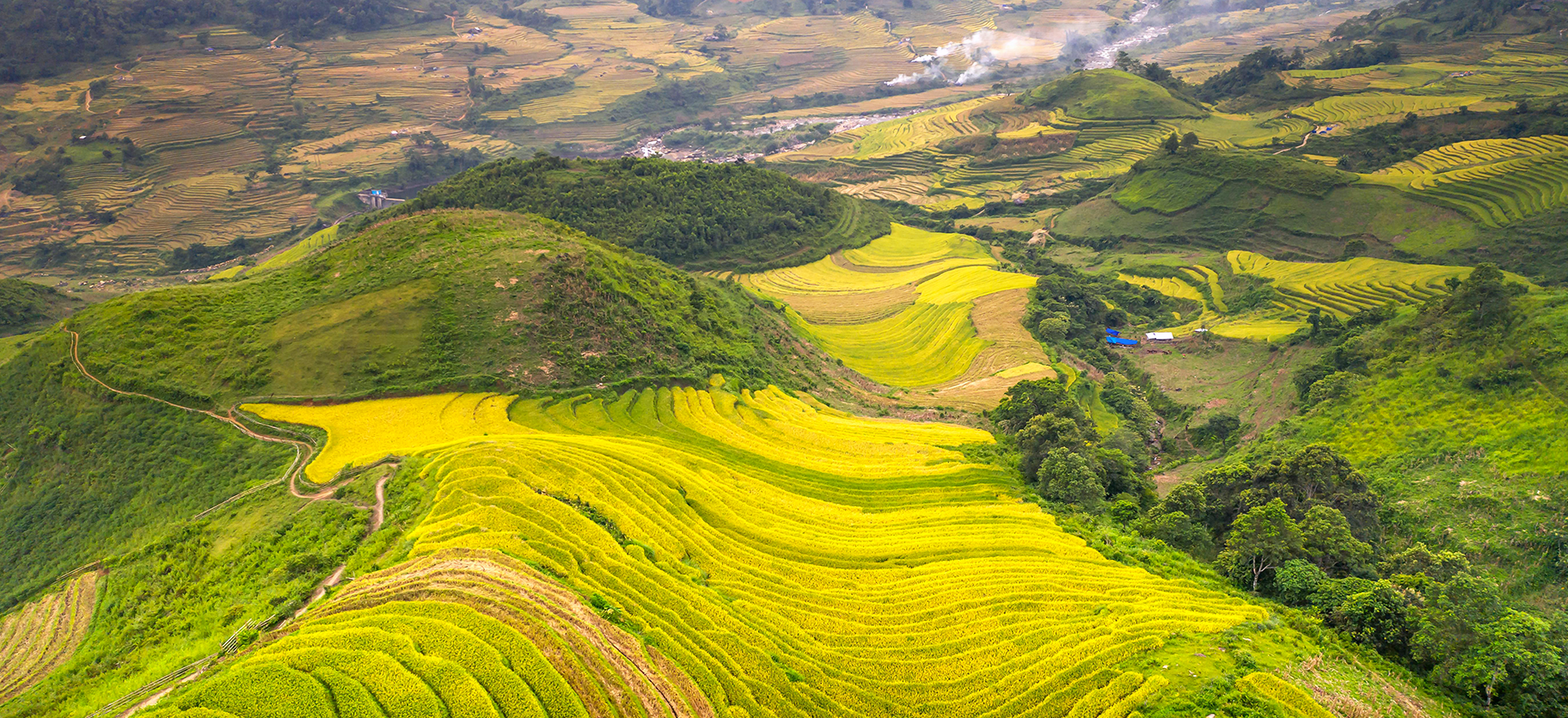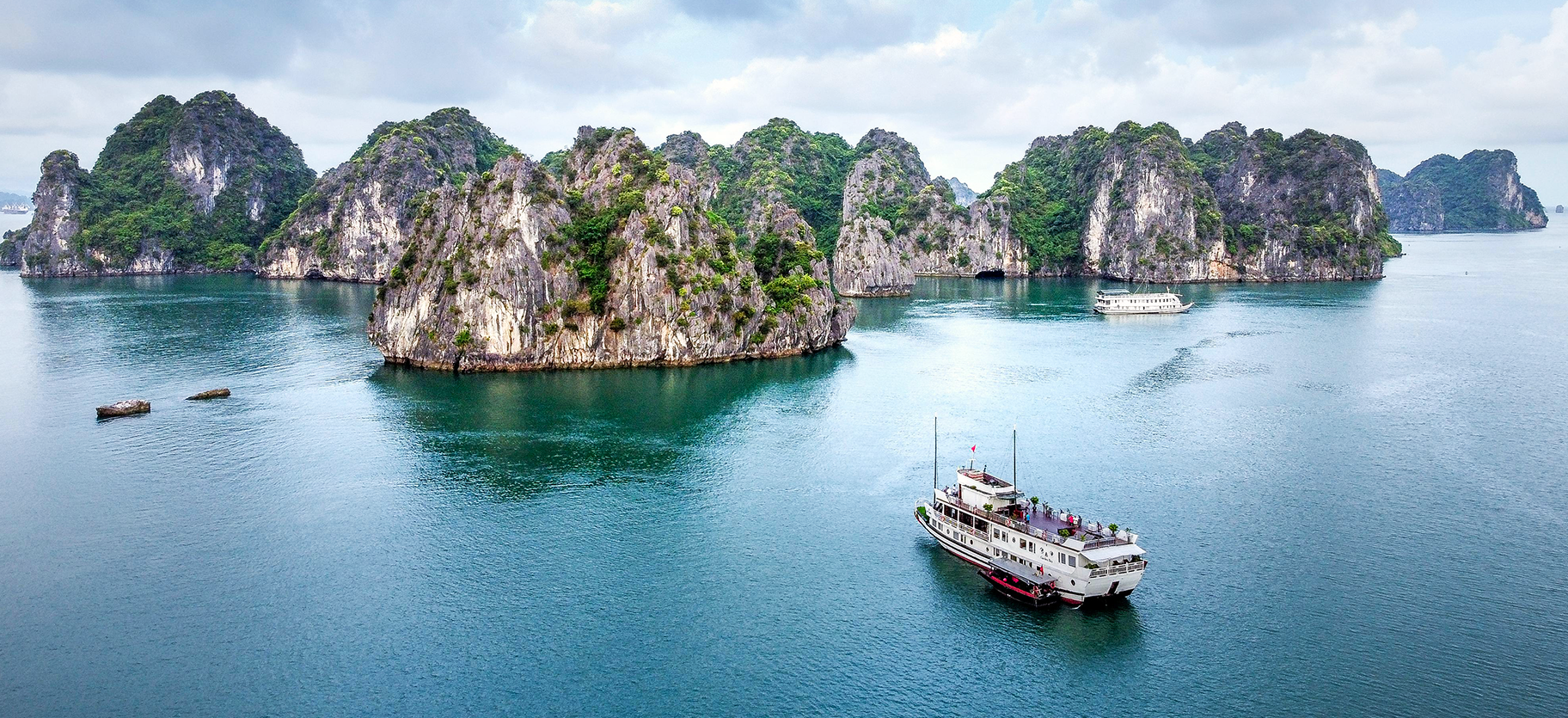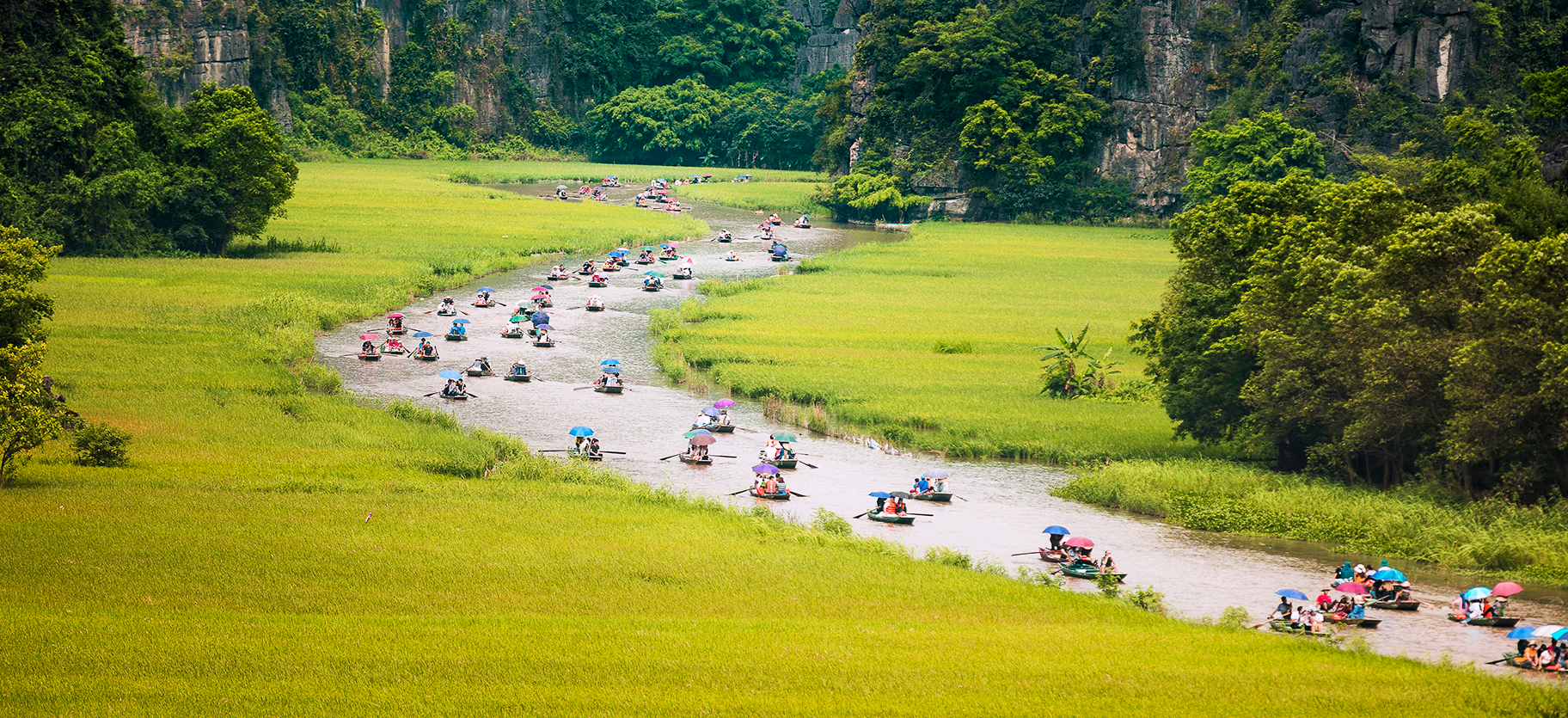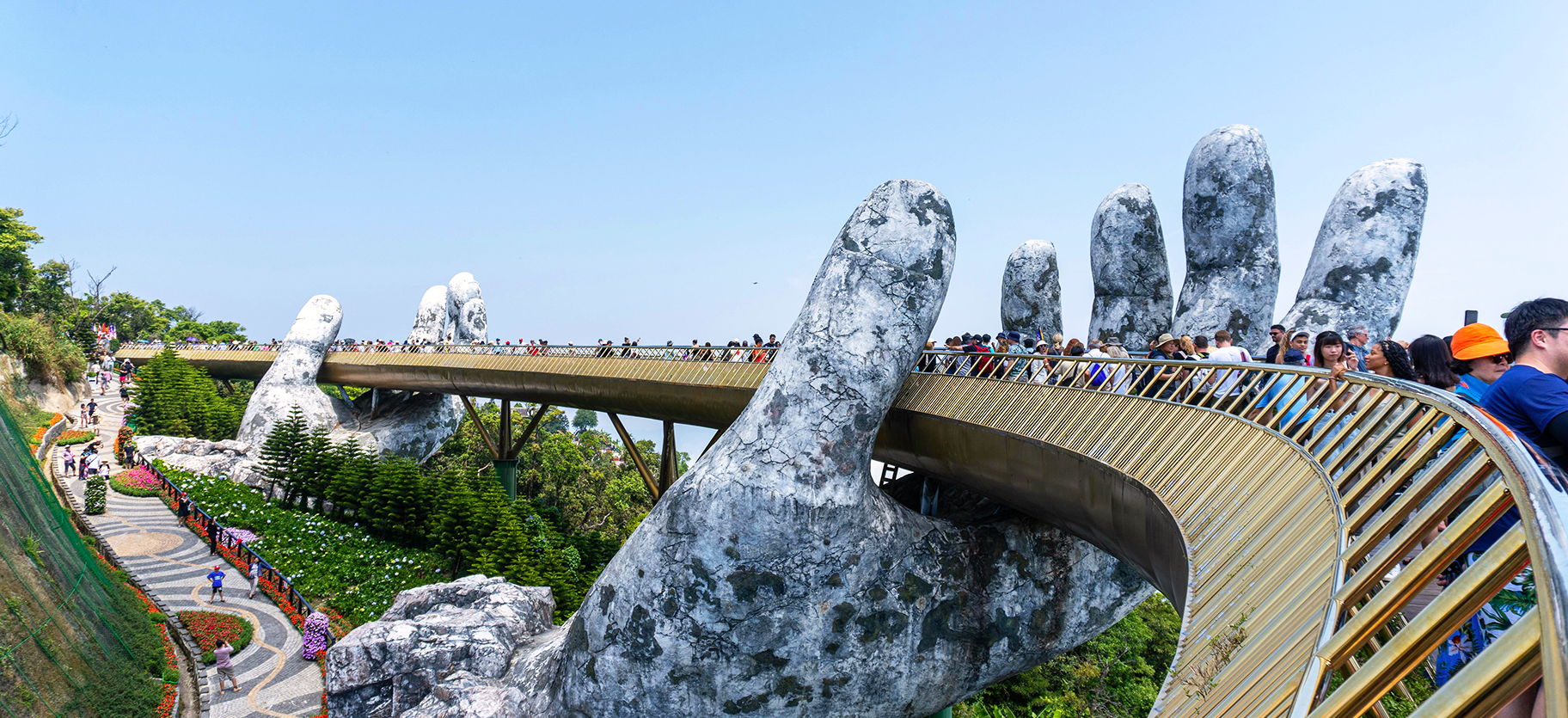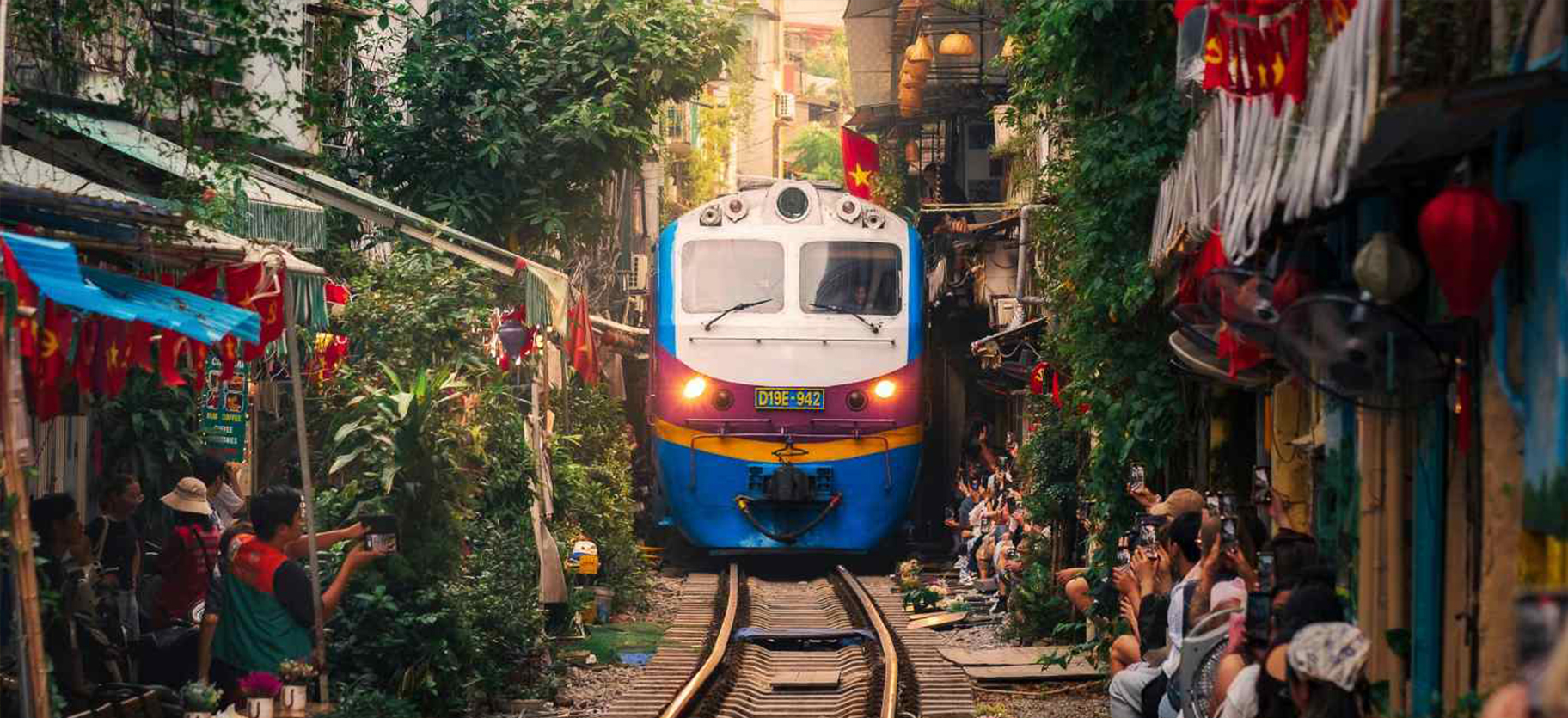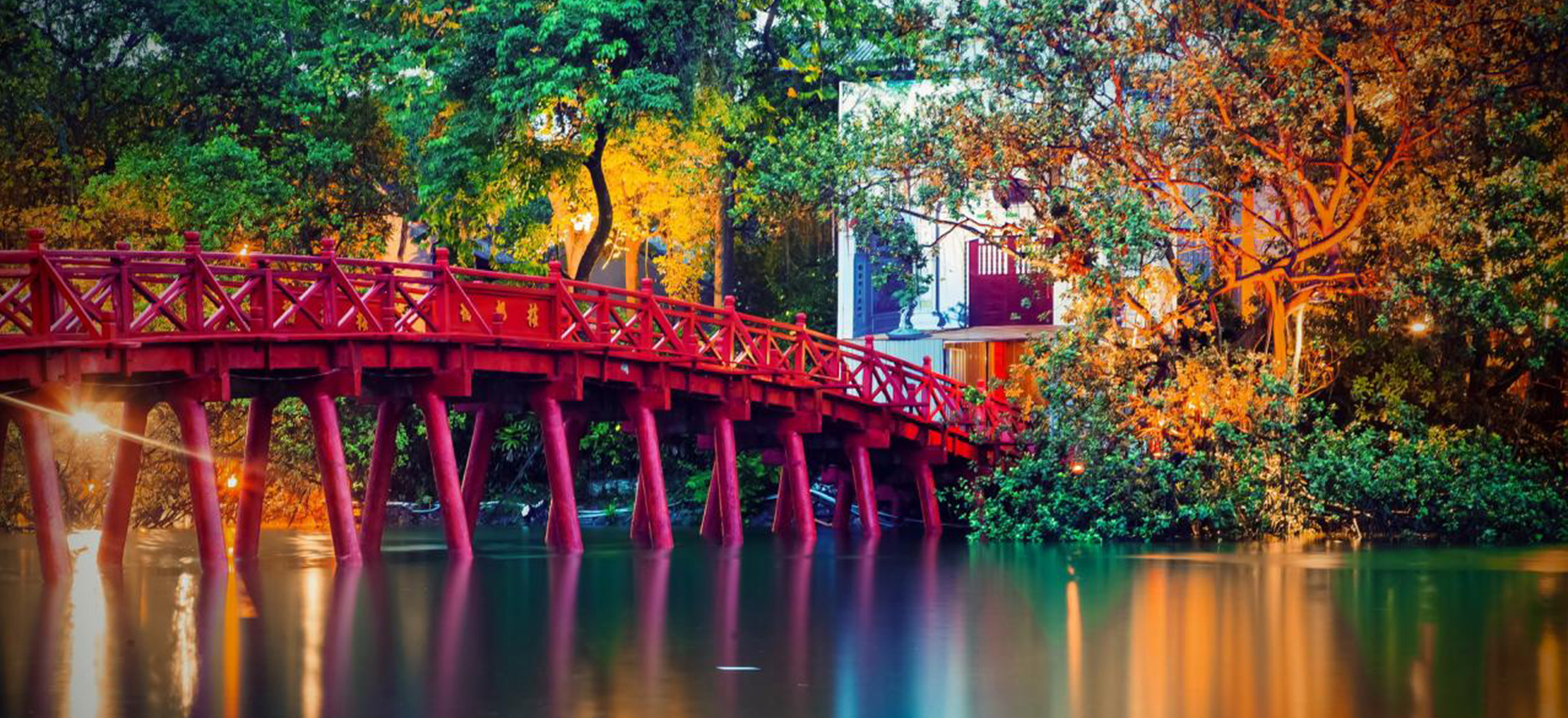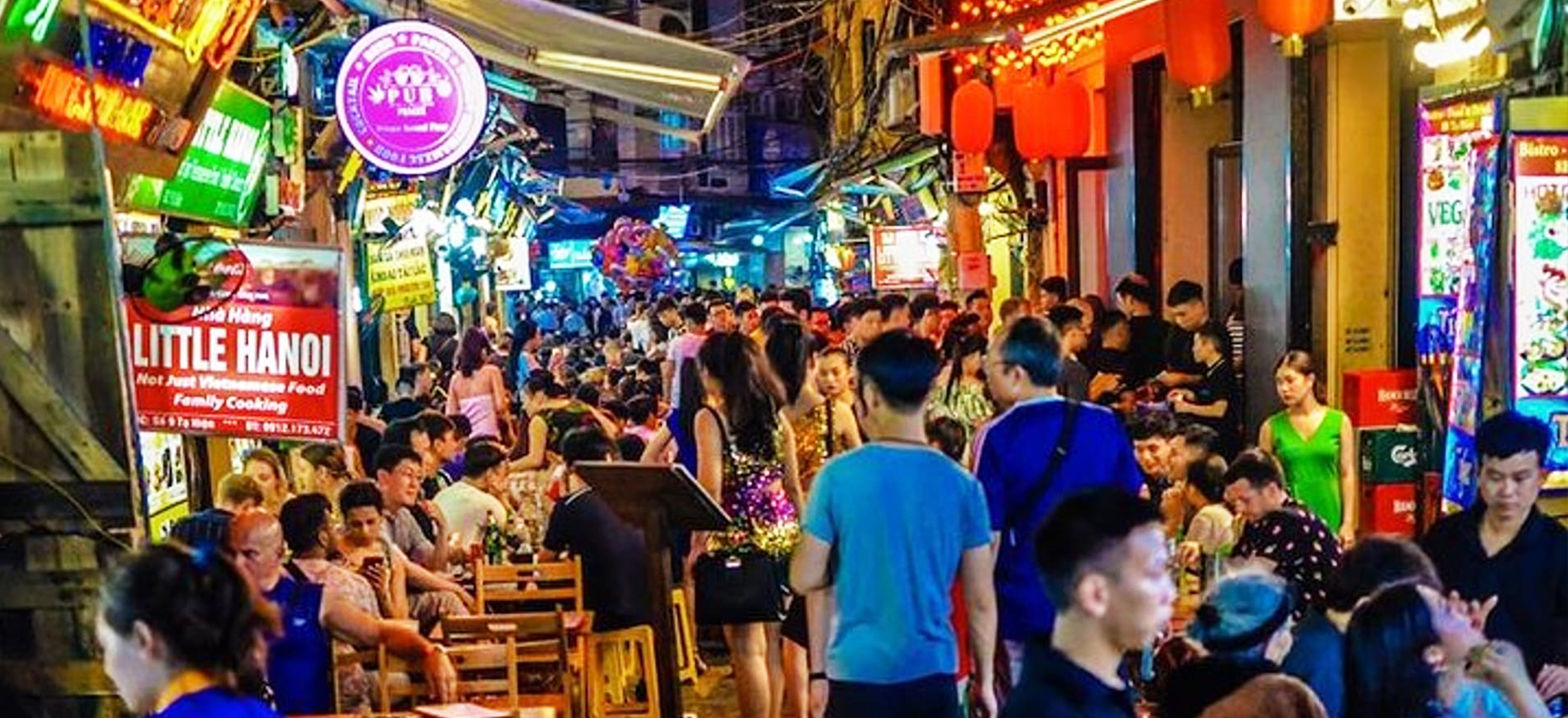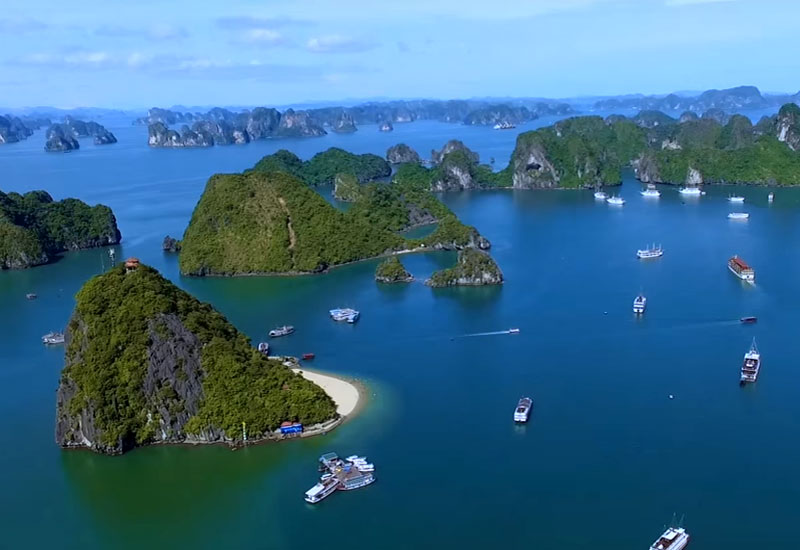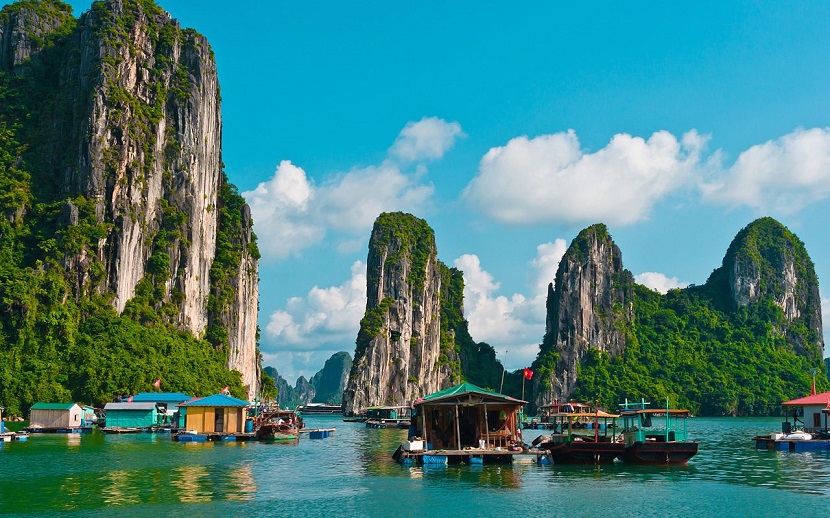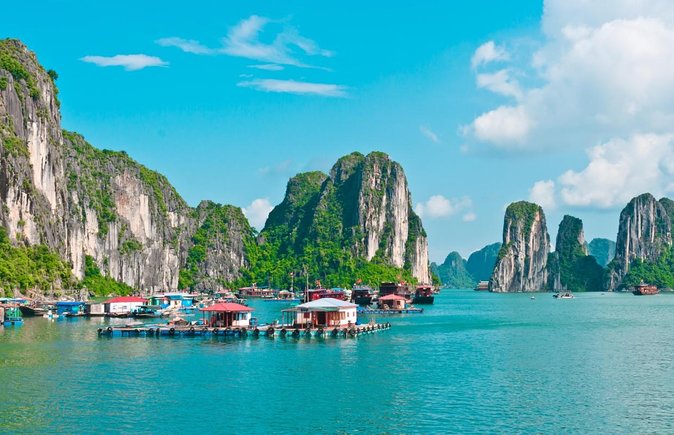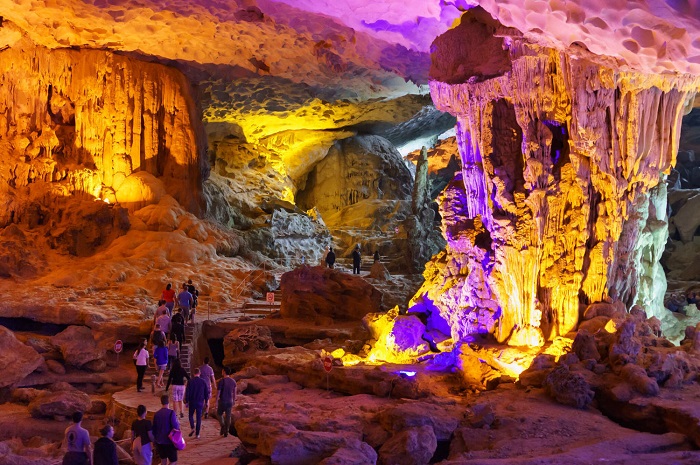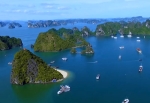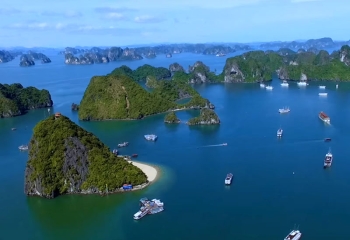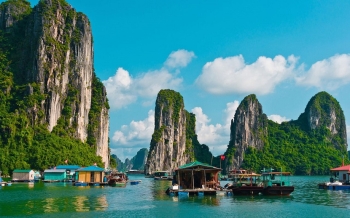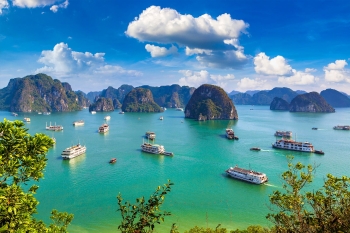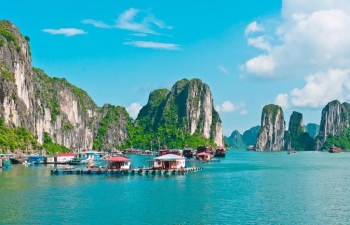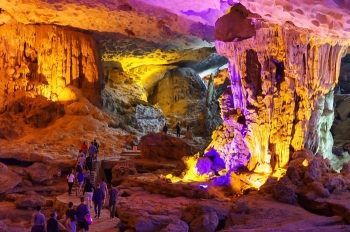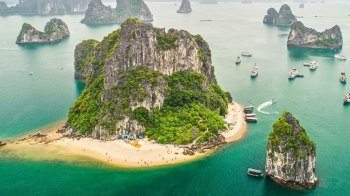Ha Long Bay is located in the northeastern part of Vietnam and constitutes part of the western bank of Bac Bo Gulf, including the sea area of Ha Long City and Cam Pha Town and part of Vân Don island district. It abuts Cat Ba Island in the southwest. Toward the west is the shore with a 120 km-long coastline. It is located within 106o58’-107o22’ east longitude and within 20045’- 20050’ north latitude. The site is 1553 sq. km with 1969 islands of various sizes, of which 989 have been named.
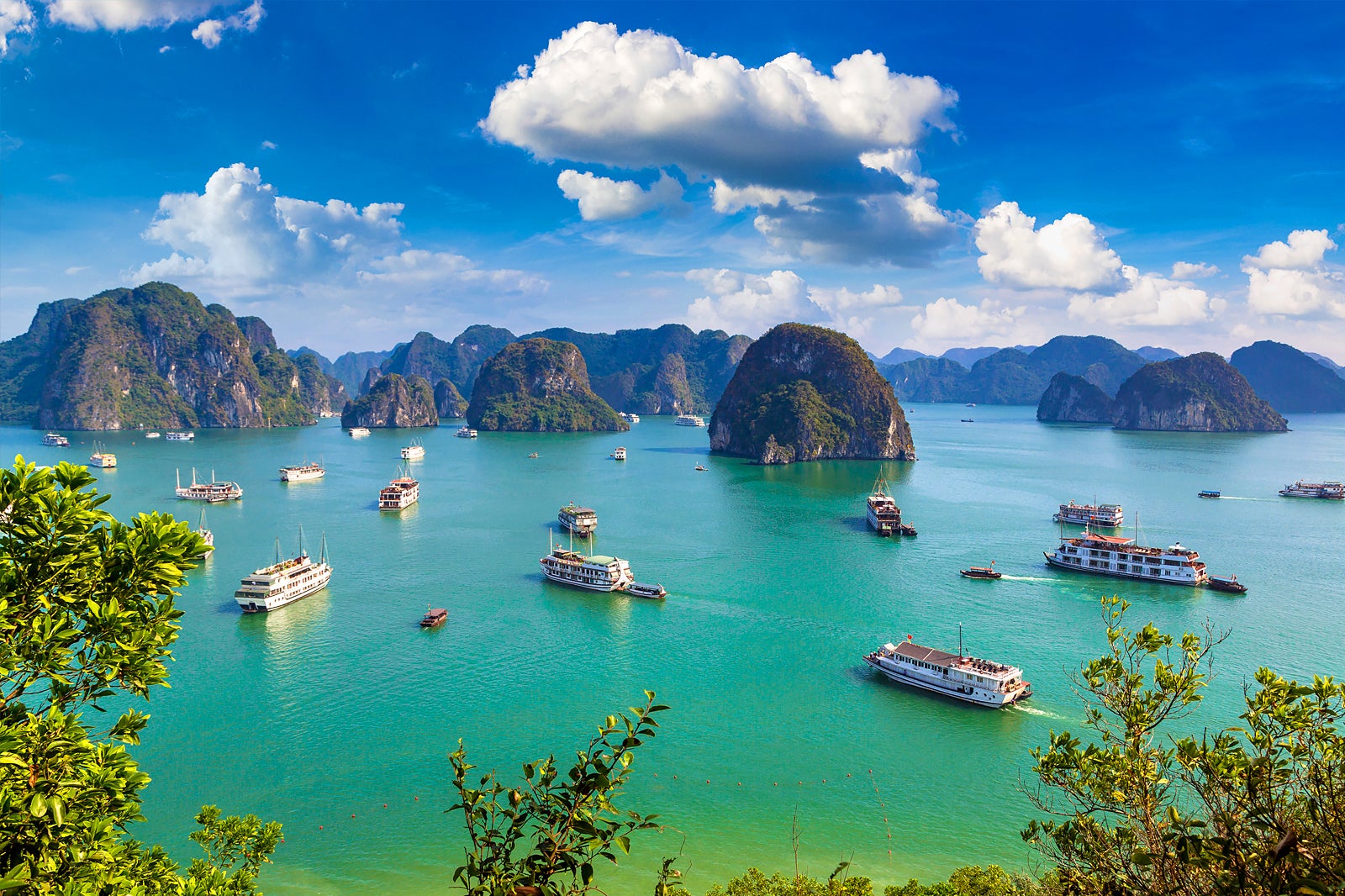
The islands in HaLong Bay are mainly limestone and schist islands most lying in the two main areas: the southeastern part of Bái Tử Long Bay and southwestern part of HaLong Bay. These islands represent the most ancient images of a geographical site having a tectonic age of from 250 million to 280 million years. They are the result of many times of rising and lowering processes of the continent to form a karst. The process of nearly full erosion and weathering of the karst created the unique Hạ Long Bay in the world. In a not very large area, thousands of islands with different forms look like glittering emeralds attached to the blue scarf of a virgin. The area where many stone islands concentrate has spectacular scenes and world-famous caves and is the center of Ha Long Bay Natural Heritage, including HaLong Bay and a part of Bái Tu Long Bay.
The area is recognized as the World Natural Heritage that is the area of 434 sq. km with 775 islands. It looks like a giant triangle with Ðầu Gỗ Island (in the west), Ba Hầm Lake (in the south) and Cống Tây Island (in the east) as its three angle points. The nearby area is the buffer area and areas classified as national beauty spots in 1962 by the Ministry of Culture and Information.
Viewed from above, Hạ Long Bay looks like an extremely vivid huge drawing. This is a wonderful and skilful masterpiece of the Creation and of nature that turns thousands of dumb soulless stone islands into fantastic sculptural and artistic works of various graceful shapes, both familiar and strange to human beings. Thousands of islands emerging uneven in the fanciful waves look strong and magnificent but also mild and vivid. Amidst these islands we feel as if we were astray in a petrified legendary world.
There are many names given to islands according to their shapes and forms. This one looks like somebody heading toward the shore: Hòn Ðầu Người (Human Head Island); that one looks like a dragon hovering above the sea surface: Hòn Rông (Dragon Island); another looks like an old man sitting fishing: Hòn Lã Vọng; some look like big sails struggling amidst the wind to set off for the sea: Hòn Cánh Buồm (Sail Island); then two islands look like a pair of chicken lovingly playing with each other above the sea: Hòn Trống Mái (Male and Female Chicken Island); and amid the vast sea stands an island like a big incense burner like a ritual offering to Heaven: Hòn Lư Hương (Incense Burner Island). All are so real that people are taken aback by them. Those stone islands have experienced unpredictable changes over time and they take different shapes from different angles of view. Here, we come to realize that they are not dumb inanimate things but are vivid and soulful.
Inside the stone islands are various breath-taking caves, such as Thiên Cung, Ðầu Gỗ, Sửng Sốt, Trinh Nữ, Tam Cung and others. These are really magnificent palaces of the Creation on earth. Long ago, Hạ Long Bay has been called by the great national poet Nguyễn Trãi: “a wonder of the earth erected towards the high sky”. Many men of letters from all over the world have been taken aback at the grandiose scenery of Hạ Long. They seem to get puzzled and incompetent as their treasure of vocabulary is not rich enough to depict the splendor of this place.
Hạ Long Bay is also attached to glorious pages of Vietnamese history, with famous sites such as Vân Ðồn, a bustling trade port in the 12th century, charming Bài Thơ Mountain, and not very far away from here is the Bạch Đằng River which witnessed two famous naval battles of the Viêt’s ancestors against invaders. Also, Hạ Long is one of the cradles of human kind with the glorious Hạ Long culture in the late Neolithic age, discovered at such archeological sites as Ðộng Mang, Xích Thổ, Soi Nhụ and Thoi Giếng.
Hạ Long is also home to great biodiversity with typical eco-systems like mangrove forest, coral and tropical forest. It is also home to thousands of plants and animals of numerous species, for example shrimp, fish and squid. Some species are particularly rare and can be found no where else.
With such special values, at the 18th Session of UNESCO’s Council of World Heritage held on 17 December 1994 in Thailand, Hạ Long Bay was officially placed on the list of the World Natural Heritage. In 2000, UNESCO recognized it as the World Heritage for the second time for its geographical and geomorphologic values. This confirms the global premier value of Ha Long Bay.
